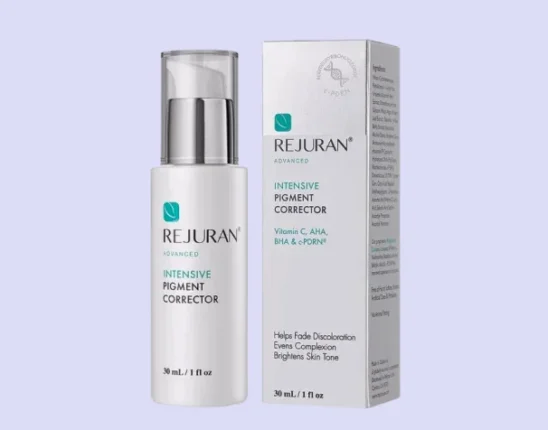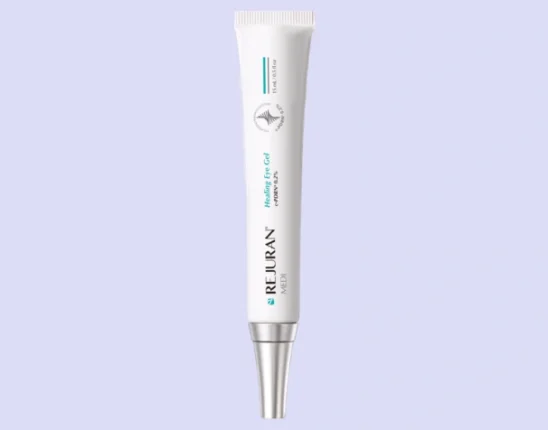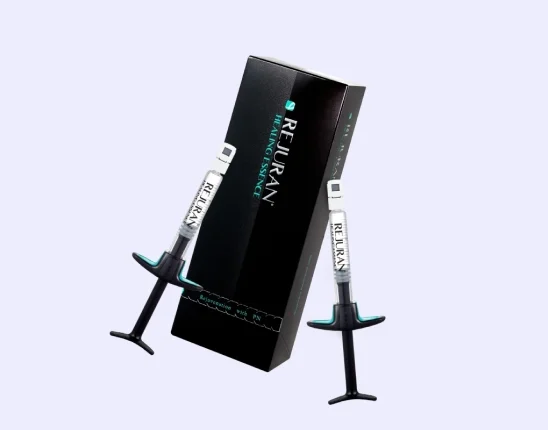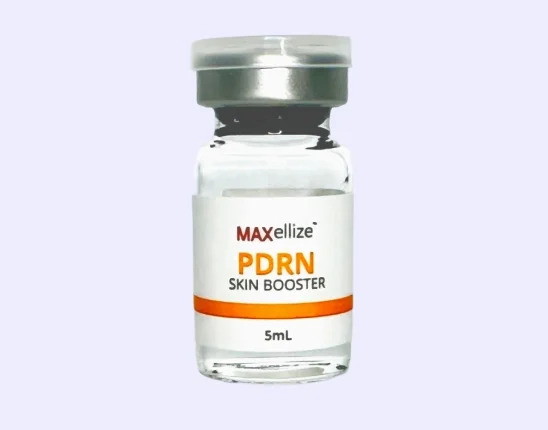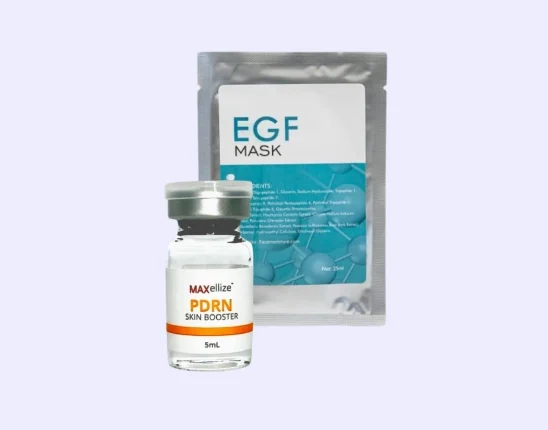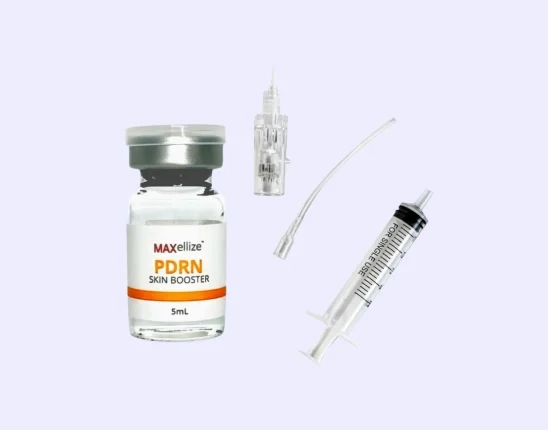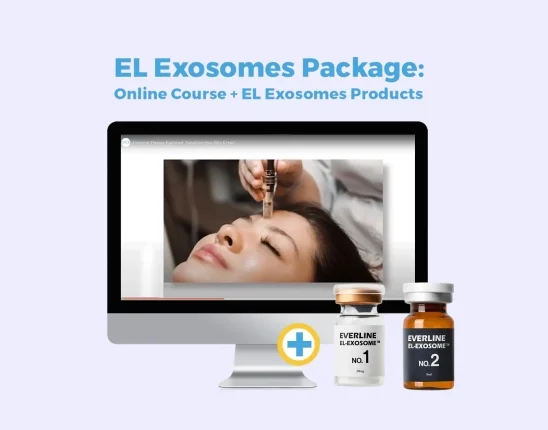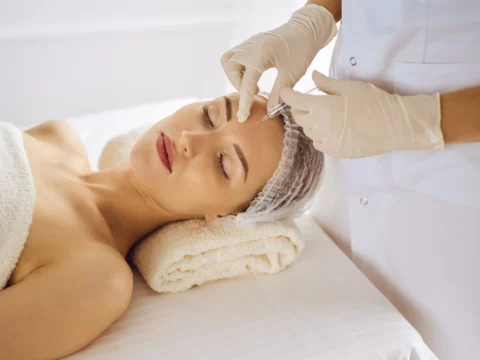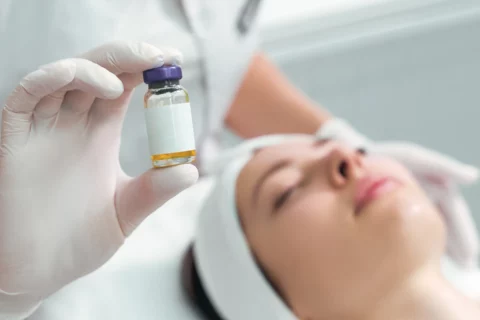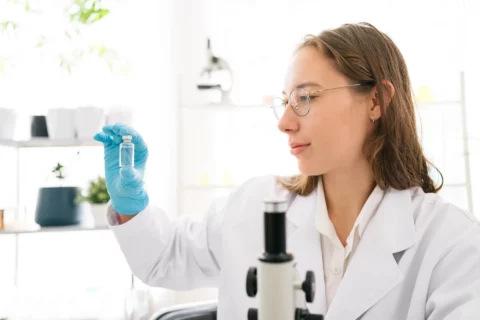Hair loss is one of the leading cosmetic problems experienced by both men and women. Current available treatments that promote hair growth such as hair transplantation and stem cell therapy are quite promising. However, cosmetic doctors are continuously researching new and more minimally-invasive procedures for hair restoration. One such treatment that’s being talked about today is exosome therapy.
So what do experts think about exosome therapy as a hair loss treatment? Exosome hair restoration involves injections of a serum that contains various growth factors, cytokines, and messenger RNA that signals the hair follicle cells to start growing new hair. According to some reviews, exosome therapy shows promise as an effective treatment for hair loss and androgenic alopecia. However, the FDA advises patients to be careful with unapproved exosome products and therapies and consult only with cosmetic professionals.
What Is Exosome Therapy And How Does It Work For Hair Loss?
Exosome therapy is an increasingly popular treatment in the field of regenerative medicine. Some doctors say that it’s an enhanced version of stem cell therapy where it does more than just accelerate the healing process in the body. Compared to stem cells, exosomes are said to contain more growth factors thus they have a more potent ability in revitalizing and restoring dormant hair follicles.
Another advantage of exosome treatment is that they’re less risky compared to autologous stem cell therapies. When injected into a patient, exosomes are unlikely to trigger an autoimmune response and they can help regulate inflammatory proteins to provide better cell healing.
Additionally, exosomes have a smaller composition than the large doses of whole stem cells which means they can safely and easily travel within the bloodstream so they can spread its effects throughout the body.
Where Do Exosomes Come From?
By definition, exosomes are extracellular vesicles that are released by the mesenchymal stem cells. They’re microscopic particles that are no more than 1/1000th of the size of a normal cell, and they contain various proteins, messenger RNA, and microRNA molecules. Unlike stem cells, true exosomes can’t replicate as they mainly act as regulators and signalers for cellular growth and bodily functions.
They’re primarily responsible for intracellular communication in the body and transmit genetic information from one cell to another. Exosomes also release multiple growth factors which are beneficial for important processes in the body. Some of the known growth factors that exosomes produce are:
- SCF (stem cell factor) – a primary factor for growth and activation of stem cells and melanocyte
- TGFB3 (transforming growth factor beta-3) – stimulates the conversion of inflammatory cells into anti-inflammatory regulatory cells
- VEGF (vascular endothelial growth factor) – regulates angiogenesis and controls the formation of new blood vessels
- MIP-1 (macrophage inflammatory protein) – responsible for recruiting cells to stimulate healing in the scalp
- FGF (fibroblast growth factor) – one of the main growth factors that encourage repair and regeneration of various cells and tissues in the body
What Can Exosomes Do For Hair Growth?
Many hair restoration surgeons and experts are optimistic about the efficacy of exosomes for addressing androgenetic alopecia. This is a form of hair loss characterized by the shrinking of hair follicles which leads to thinning and balding hair over time.
According to some in vitro studies, exosomes that are derived from dermal papilla cells have an important role in the proliferation of hair follicle stem cells and the activation of the hair growth cycle. The development of hair follicles is thought to be dependent on the signals between the epithelial cells and DP cells. The growth factors from the DP-derived exosomes are capable of stimulating the follicles to accelerate hair regeneration.
Some researchers also suggest that VEGF from exosomes is critical in enlarging follicle size to promote the growth of thicker and stronger hair. One recent human study implies that exosomes provide visible hair growth at a faster rate than the commercially available hair loss therapy options.
The study followed 20 patients with androgenic alopecia and the researchers discovered improvements in hair density and hair thickness after 12 weeks of exosome treatment. They also shared that the participants experienced no adverse events which hint at the safety of the therapy for hair regrowth.
Possible Benefits Of Exosomes For Hair Restoration
Due to the unique functions of exosomes, they offer several benefits that contribute directly to the issue of hair loss in patients. Based on the available studies, some of the advantages of exosomes as a hair regeneration treatment are:
- Promotes natural regeneration and activation of hair follicle growth
- Has healing properties that repair tissues and revitalize the scalp through its multiple growth factors
- Supports the hair growth cycle by ushering the human hair follicles to enter its anagen phase sooner to restart the production of new hair strands
- Prolongs the growing stage by delivering signals that continuously tell the follicles to produce hair
- Prevents further hair loss by delaying the start of the catagen phase where the hair stops growing
What Reviews Are Saying About Exosome Hair Loss Treatment
Using exosomes for hair restoration is certainly gaining a lot of attention and positive reviews in the medical aesthetics industry. Some hair loss experts are pertaining to exosomes as a groundbreaking procedure and the “future of non-surgical hair loss solutions”.
In an online article discussing exosomes as a miracle treatment for hair growth, Dr. John Cooley of Cooley Hair Center shared that this therapy could represent a breakthrough in hair loss treatments.
Another write-up on the New Beauty website featured Dr. Craig Ziering of Ziering Medical who talked about how exosomes can be a promising cutting-edge treatment for hair loss. With its anti-inflammatory properties, Dr. Ziering believes that exosome hair loss therapy can be particularly beneficial for patients with scarring alopecia and inflammation.
Allure also shared an article discussing the latest treatments for hair loss and they got to talk with Sara Wasserbauer who is a professional hair restoration surgeon. She’s hopeful that it can be a good solution, highlighting how everyone in the hair medicine community is eager to see the results from the clinical trials.
In the same article, board-certified facial plastic surgeon Yael Halaas said that exosome therapy is one of the most exciting innovations for hair loss treatment in recent years. Halaas has co-authored a published review on exosomes and their therapeutic benefits for hair growth.
Is Exosome Therapy Worth Trying?
Although many clinics are offering exosome therapies, the FDA has not yet approved any exosome products specifically for hair restoration treatment. This procedure is still experimental and further studies need to be done to understand its full implications for hair loss. Interested patients are advised to consult with their cosmetic providers to know what to expect with the treatment.
For some doctors, exosome therapy is worth a try because it’s a good non-invasive alternative to hair transplant surgery. The procedure usually begins with a consultation where the provider asks about a patient’s medical history and conducts several tests to identify the causes of hair loss.
Unlike stem cell therapy that involves extraction from bone marrow stem cells, exosomes are obtained from the mesenchymal stem cells and are isolated using the ultracentrifugation process. Once the exosomes are prepared, they are applied to the scalp by injections.
The provider will inject the exosomes directly to the areas where the patient experiences hair loss. Some clinics may also do microneedling or laser therapy to stimulate the injections. The entire procedure can last for an hour and most patients can return to their activities with minimal downtime.
The results from exosome therapy are not immediate and patients would have to wait for at least 3 to 6 months to see noticeable hair growth. Exosome injections can last for at least a year after the final treatment. Follow-up procedures may be performed upon evaluation of the initial hair growth results.
How Safe Is Exosome Therapy For Hair Loss?
There are not enough clinical studies that show side effects from exosome hair loss therapy. However, researchers share that exosomes cannot trigger any immunogenic response and they cannot get any viral or bacterial infection. This suggests that exosomes are safe for injections for hair rejuvenation.
How Exosome Therapy Differs From PRP Injections
| Platelet rich plasma therapy | Exosome therapy | |
| Where Does It Come From | PRP treatment uses a person’s own blood which is then prepared to get the platelet-rich concentrate that contains the growth factors. | It’s lab-derived and doesn’t require any blood drawn from the patient. They’re prepared from mesenchymal stem cells and they already come in vials that are ready for injections to the scalp. |
| Effectiveness | Platelet rich plasma injections have been used for years to treat hair loss. According to scientific studies, it has shown significant improvements for patients with alopecia. However, the effectiveness of the treatment relies greatly on the concentration of the platelets in the patient’s blood. If a patient is unhealthy or has blood-related conditions, the quality of the PRP injections may be affected. | Unlike PRP serum, the quality of the exosome injections isn’t affected by the patient’s health, blood volume, or age. During the preparation process, it’s purified to ensure a high concentration of growth factors for treatment success. |
| Side Effects | PRP may cause injection site pain, scalp tenderness, itching, and minor irritation. It may also cause swelling and inflammation. | Exosome injections may also cause pain at the treated area. However, it won’t trigger any inflammation since it actually contains proteins that regulate the inflammatory response. |
PEP Factor Hair Growth Products: A Possible Alternative To Exosomes and PRP Treatment
Exosomes and PRP therapy are two viable hair loss treatments but not all clinics may be capable of offering them for certain reasons. The extensive method of PRP preparation, finding a centrifuge machine, and the average cost of exosomes are just some of the factors that should be considered.
One of the ideal cost-effective choices for hair loss treatment is the PEP Factor products. PEP Factor contains a mix of fibroblast growth factors, copper peptides, and other important proteins that may promote healthier scalp and hair growth. It’s usually applied topically which eliminates the need for blood work and injections.
PEP Factor can also be a great complementary treatment to enhance the effects of PRP and other treatments such as microneedling. Aside from hair restoration, providers may also offer PEP Factor products for skin rejuvenation as its fibroblasts components can support collagen production for improved skin elasticity and texture.
Get High-Quality PEP Factor For Hair Rejuvenation At FACE Med Store
Although exosome treatment is already being praised for its therapeutic potential, there’s still a lot of research to be done about its effectiveness for hair loss. If you’re looking to invest in a hair loss solution, PEP Factor products may be a better choice for their special formulation of growth factors that offer improvement in hair growth and scalp health.
FACE Med Store is dedicated to providing high-quality and affordable medical tools and products to many cosmetic practices. Shop PEP Factor products today by browsing our website or calling us for more information about our offerings.
Read More: What Do High Serum Levels Of Transforming Growth Factor Beta-1 Mean?
